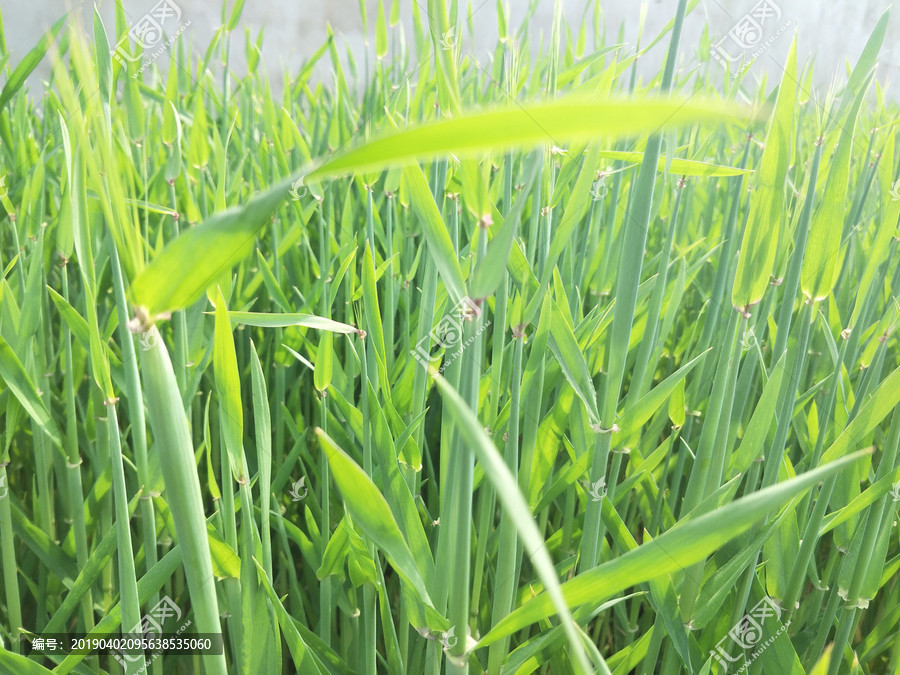[Customs Knowledge] About Importing Spanish Oat Grass
The import of Spanish oat grass
According to relevant laws and regulations in China and the Protocol between the General Administration of Customs of the People's Republic of China and the Ministry of Agriculture, Fisheries, and Food of the Kingdom of Spain on the Hygiene and Phytosanitary Requirements for Spanish Oat Grass Exported to China, the General Administration of Customs issued Announcement No. 52 of 2022 (Announcement of the General Administration of Customs on the Inspection and Quarantine Requirements for Imported Spanish Oat Grass) on June 21, 2022. Starting from the date of this announcement, Allow the import of Spanish oat grass that meets the following relevant requirements.
Inspection and quarantine basis
The Biosafety Law of the People's Republic of China;
The Law of the People's Republic of China on the Entry and Exit Animal and Plant Quarantine and its implementation regulations;
Measures for the Supervision and Administration of Inspection and Quarantine of Import and Export Feed and Feed Additives;
Protocol between the General Administration of Customs of the People's Republic of China and the Ministry of Agriculture, Fisheries and Food of the Kingdom of Spain on the Hygienic and Phytosanitary Requirements for the Export of Spanish Oat Grass to China.
Product names allowed for entry
Oat grass (Avena sativa L. and Avena strigosa Schreb) refers to oat hay grown in Spain and dehydrated at high temperatures.

Enterprise registration
Exporting Swallow Grass to China must come from a processing enterprise approved by the Ministry of Agriculture, Fisheries and Food of the Kingdom of Spain (hereinafter referred to as the West). The processing enterprise is recommended by the West to the General Administration of Customs of the People's Republic of China (hereinafter referred to as the Chinese side), and registered after passing the inspection by the Chinese side. The list of relevant enterprises is published and dynamically updated on the website of the General Administration of Customs.
Concerned harmful organisms
Liriomyza trifolii
Oculimacula yallundae, a pathogen of wheat basal rot
Ambrosia psilostachya, a perennial ragweed
Avena ludoviciana, a wild oat from France
In addition to the harmful organisms mentioned above, there are also: Clavibacter michigan ensis subsp Michiganensis, Maize chlorotic mottle virus (MCMV), Barley yellow dwarf virus, Lolium temulentum, Avena barbata, Avena sterilis, Aphelenchoides fragaria, and Ditylenchus dipsaci are harmful organisms.
Product production and export requirements
Planting, processing, storage, and transportation
1. Oat grass planting farms must implement effective Integrated Pest Management (IPM) measures to avoid and control the occurrence of harmful organisms of concern to China. Oat grass processing enterprises must establish an effective quality control system, implement effective control over raw material procurement, high-temperature dehydration, product testing, and other processes, maintain the cleanliness of the processing area and equipment, take effective measures to remove impurities and dirt before compressing and bundling, and do not use metal materials for packaging to ensure that oat grass meets the following requirements:
(1) Harmful organisms and other living organisms that are not of concern to the Chinese side;
(2) Free from grass roots, plant seeds, and other plant residues and foreign objects;
(3) Do not carry animal feces, animal carcasses, or poultry feathers;
(4) Without soil;
(5) Without genetically modified ingredients;
(6) The relevant requirements of the Chinese national standard "Feed Hygiene Standard" (GB 13078).
2. The storage facilities before shipment should meet the following requirements:
(1) Having relatively closed and independent spaces;
(2) Take effective measures to prevent rodent, insect, and bird pollution.
3. Processing enterprises should have mechanical drying facilities, and the drying process should be maintained at 250 ℃ for more than 5 minutes.
4. The planting, processing, and storage areas of oat grass should be isolated from animal farms, pastures, etc. to avoid contamination by animal excrement, secretions, etc.
5. Use clean containers and other enclosed tools to transport the imported oat grass. If necessary, inspection and quarantine measures should be implemented

Pre departure quarantine and certificate requirements
1. Oat grass that has passed Western inspection and quarantine and meets the requirements of this protocol is allowed to be exported to China.
2. Each batch of imported oat grass should be accompanied by a plant quarantine certificate issued by the Spanish authorities that meets international standards. The plant quarantine certificate should indicate information such as the name and registration number of the processing enterprise, the name and address of the shipper and consignee, and the number of the container or transportation vehicle, And in the additional statement, it should be noted that "this shipment complies with the 'Protocol on the Sanitary and Phytosanitary Requirements for the export of oat hay from Spain to China', and is free of any quarantine pest concerned by China".
3. Spanish authorities should issue veterinary hygiene certificates.
Entry inspection and quarantine
Certificate verification
1. Verify whether the "Entry Animal and Plant Quarantine Permit" is attached;
2. Verify whether it comes from a registered enterprise;
3. Verify whether the plant quarantine certificate and veterinary hygiene certificate are true and valid.
Inspection of goods
According to relevant laws, administrative regulations, rules, and other provisions, in conjunction with Articles 4 and 5 of this requirement, oat grass shall be inspected and quarantined, and shall be allowed to enter the country after passing the inspection.
Handling of non conformities
1. If there is no valid plant quarantine certificate or veterinary hygiene certificate, it shall be returned or destroyed;
2. Returned or destroyed from unregistered processing enterprises;
3. If soil or genetically modified ingredients are found, return or destroy them;
4. If it is found that it does not comply with Article 5 (1) (1) (1) of this requirement, it shall be treated with disinfection, return or destruction in accordance with relevant laws and regulations. Those who have passed the processing are allowed to enter the country;
5. If it is found that it does not comply with Article 5 (1) (5) of this requirement, it shall be corrected, returned or destroyed;
Any other situations that do not meet the requirements of China's entry animal and plant quarantine shall be dealt with in accordance with relevant laws and regulations.
本文来源:http://www.jtia56.cn/list_70/426.html
本文标题:[Customs Knowledge] About Importing Spanish Oat Grass
注:本文部分图文来源于网络,如有侵权联系我们删除,谢谢!
Customs knowledge: What must be known when importing grain Customs Knowledge: The Import of Pearlescent Pigments
迦泰通(海关AEO高级认证企业)-服务范围
迦泰通19年进出口通关经验,10+分公司,支持全国进口申报;是海关AEO高级认证企业,专注全球门到门,一站式进口代理清关服务!我司业务范围:国际运输、进口报关清关、仓储配送、代签外贸合同与付汇、暂时进出口等。全国免费咨询电话tel:18521306667
【相关推荐】
- 了解详情 > Customs Knowledge: Safety Inspection and Supervision Require
- 了解详情 > Customs knowledge: Declaration requirements for plastics and
- 了解详情 > Customs knowledge: Food additives that are dangerous goods
- 了解详情 > Customs Knowledge: The Import of Pearlescent Pigments
- 了解详情 > Customs knowledge: Import of hazardous chemicals and their p
- 了解详情 > [Customs Knowledge] Attention! These goods require an apprai






